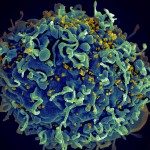Emerging and re-emerging viruses are key players among the different pathogens that have caused recent epidemics, as attested by several severe outbreaks affecting humans such as Ebola, chikungunya, influenza, Zika, dengue, SARS and MERS or outbreaks attacking animals such as rabies and bluetongue disease.
This MOOC aims to provide a fundamental knowledge about the different viruses that are involved in viral emergence and describes the associated molecular mechanisms and conditions that drive their emergence. Those range from viral mutations to climate change, the impact of urbanization to alterations in human behaviour.
Special attention is given to the global “One Health” approach. The MOOC provides basic insights on viral epidemiology and outbreak modelling as well as on detection, early management and infection control mechanisms. It focuses on the scientific and medical measures to prevent and counteract the emergence or re-emergence of viruses, but it also brings a view about the response of governments and agencies such as the World Health Organization (WHO) to control the worldwide viral dissemination. The MOOC is built up on the profound expertise from international experts in the field of emerging and re-emerging viruses and takes advantage of the worldwide Institut Pasteur Network.
Finally, it should be emphasized that this MOOC illustrates the latest knowledge about the Covid-19 pandemic. Here are presented data from Covid-19 virology, epidemiology and vaccinology, as well as the latest findings on the structural determinants of SARS-CoV-2 for the design of therapeutic monoclonal antibodies. The impact of SARS-CoV-2 infection on the central nervous system is also deciphered.
A rerun of this MOOC as part of the Online Diploma of infectious Diseases of the Institut Pasteur DNM2IP is scheduled at the beginning of 2022.
For more information, please visit



